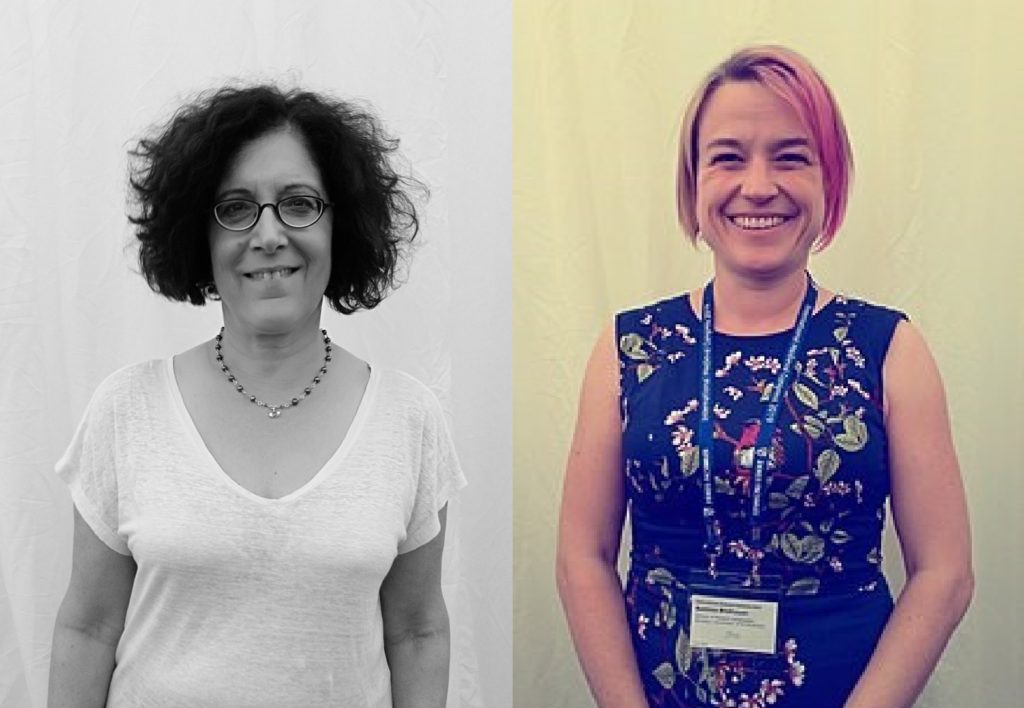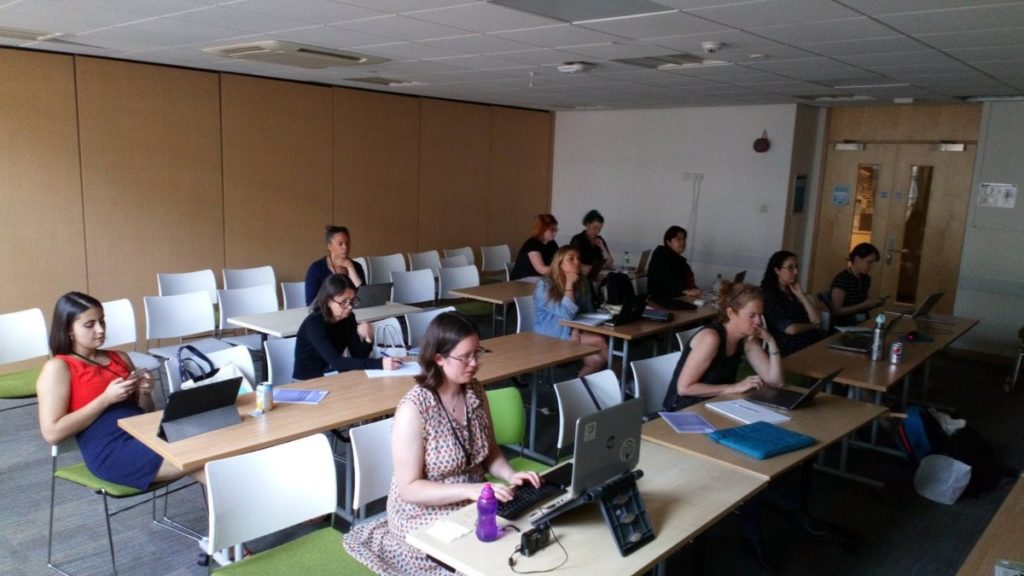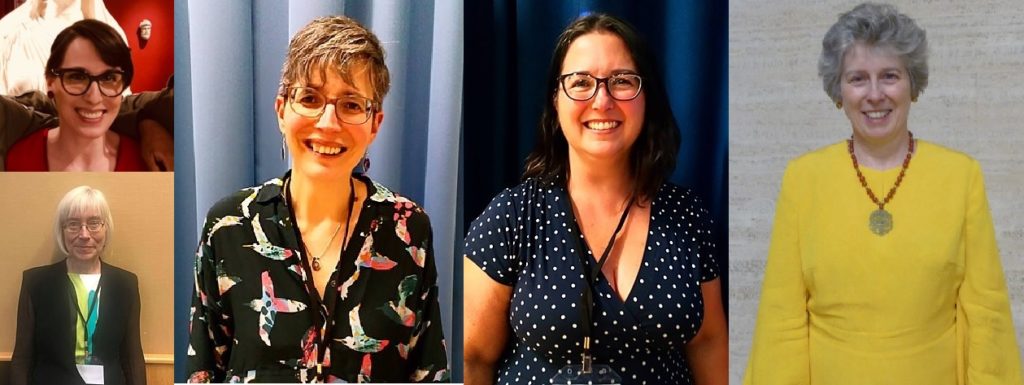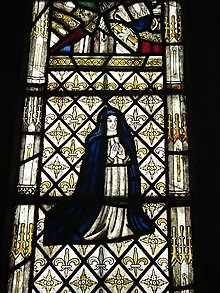#WCCWiki: Editing Ancient and Medieval Women Historians into Wikipedia
by lizgloyn
Dr. Victoria Leonard writes, giving us an update on the #WCCWiki team’s activities this month.
With two major conferences in ancient and medieval studies back-to-back, early July 2019 was a particularly productive time for those who work across both disciplines. The gender bias of Wikipedia transcends boundaries of study, and women in both fields are poorly represented on the largest and most influential source of information in the world. #WCCWiki embarked on an epic mission to rebalance the gender gap at both the Leeds International Medieval Congress, 1-4 July and the FIEC/Classical Association Conference, 5-8 July 2019.
Following an enormously successful roundtable on #Foremothers in the morning, a Wikipedia editathon to improve the representation of women in Late Antique, Byzantine, and Medieval Studies was held in the afternoon on Tuesday 2 July. It was organised by Dr Victoria Leonard and Sukanya Rai-Sharma, and was co-sponsored by the Women’s Classical Committee (UK) and the Society for Medieval Feminist Scholarship.
The event was free and open to the public. Dr Kate Cook delivered an expert training session for those who had never edited Wikipedia before, which was followed by a communal editing session, also supported by Dr Richard Nevell. Our scope was wide and included women related to Art History, Archaeology, Digital Humanities, Modern Theories, Religious Studies, and Theology as well as History. #MedievalWiki attracted 15 editors, with 14 women and 1 man. We were able to edit 25 articles, create 2 new articles, and add 4,300 words to Wikipedia on women historians. The articles we created and edited attracted over 4,000 page views in five days.
Our achievements included a new article for Professor Geraldine Heng, author of The Invention of Race in the European Middle Ages, and a new article for Professor Ruth Dean, an expert on Anglo-Norman literature. Other articles were improved such as those for Professor Monica H. Green and Susan Reynolds. Pictures were taken at the IMC of Professor Miri Rubin and Professor Bettina Bildhauer which were uploaded to their pages. The page on Llanllugan Abbey, a monastery of Cistercian nuns and one of only two Cistercian women’s monasteries in Wales, was improved and a beautiful image of a stained glass window depicting a nun kneeling in prayer was also uploaded.

On Friday 5 July, three days after #MedievalWiki, an editathon was held to improve the representation of women Classicists (broadly conceived) at the FIEC/Classical Association Conference. Katie Shields and Dr Anna Judson led the training, with productive interjections from Professor Juliana Bastos Marques. As at #MedievalWiki, 1-2-1 guidance was available for those learning to edit Wikipedia following the training.
The event attracted about 18 attendees in total, all of whom were women. Professor Sarah Bond and Juliana Bastos Marques were notable exceptions as senior women; most people who attended were graduate or early career women, as is the trend. Both events were well organised and received excellent institutional support. Our inclusive and friendly atmosphere made the events fun and created solidarity, and no one got left behind or stuck learning to edit. We were able to disseminate valuable digital humanities skills alongside reasons to use them.

Through the #WCCWiki event we created two new articles, edited 18 articles, and added 4,500 words to Wikipedia. These pages received over 200 page views in two days. We also uploaded five images, featured on the Wikipedia pages for Professor Sarah Bond, Professor Helen Lovatt, Professor Rebecca Futo Kennedy, Professor Alison Keith, and Professor Judith Mossman. Our contributors created pages for Professor Lydia Baumbach and FIEC (Fédération internationale des associations d’études classiques).The page for Professor Ida Ostenberg was created a while ago and is a solid collaboration between #WCCWiki editors, and now includes an image. When the plenary speakers for CA/FIEC were announced, none of the women speakers had pages, a situation transformed by #WCCWiki.

There is, of course, still much work to be done. The keynote speaker at the CA/FIEC Professor Corinne Bonnet still does not have a page, and the page for Professor Paula da Cunha Corrêa does not have an image. Two of the women keynote speakers at the IMC, Professor Maria Giuseppina Muzzarelli and Professor Emma Dillon, do not have Wikipedia pages, and Professor Marina Rustow‘s page has no image.
We are always looking for contributors, and we would especially like to diversify our editing community. #WCCWiki continues to attract few participants who are men; we warmly appreciate our contributors who are men. It would be fantastic to receive more support from a wider demographic, including men and more senior historians and academics; the burden of this labour is falling on the shoulders of precarious, under or unemployed, early career women as facilitators and contributors. The intersectional representation of women historians online is everyone’s business, and everyone benefits from this representation being improved.
If you would like to find out more about #WCCWiki, please visit the Project Page here. You can also search for #WCCWiki and #MedievalWiki on Twitter without needing an account, and here and here are threads about these events. You can also follow @tigerlilyrocks (Victoria Leonard), @Anya_Raisharma (Sukanya Rai-Sharma), @SocietyMedFem (Society for Medieval Feminist Scholarship), and @womeninclassics (Women’s Classical Committee UK).

The organisers would like to thank the International Medieval Congress, Fédération internationale des associations d’études classiques, the Classical Association, and Wikimedia UK for their invaluable and generous support of our initiative, without which these events would not have been possible. We especially acknowledge the time and expertise of the women trainers which was freely given in all senses.
